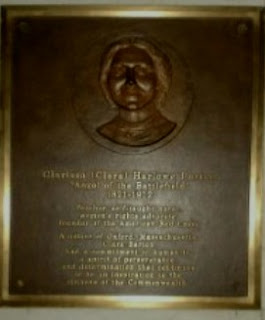Sarajevo pays tribute to 20th anniversary of Bosnian War
Earlier this year on
April 6, 2012 thousands of people in Sarajevo, Bosnia-Herzegovina paid special
tribute to the 11,541 people who lost their lives during the longest siege of a
city in modern history. The nearly four-year
Serbian siege of Sarajevo began on April 6, 1992.
The 380,000 residents of the city were under the constant threat of mortar and gun fire. Additionally, residents lost electrical power, water, and heating for 3 years, 8 months. Children, men, and women died in the war.
The 380,000 residents of the city were under the constant threat of mortar and gun fire. Additionally, residents lost electrical power, water, and heating for 3 years, 8 months. Children, men, and women died in the war.
Associated Press
reporter Aida Cerkez described the beginning of the war in a news article that
appeared in The Boston Globe on April
7, 2012. “On the fateful day of April 6,
1992, about 40,000 people from all over the country – Muslim Bosniaks,
Christian Orthodox Serbs, and Catholic Croats – poured into a square further
down the red street to demand peace from their quarreling nationalist
politicians.” The spark that ignited the
conflict occurred when Serb nationalists shot and killed five people in the
crowd that were gathered in the square.
Serb nationalists began destroying the city with mortar shells and
eventually they forced all non-Serbs out of the areas of the country that they
had taken over.
All three groups of
people spoke the same language and had been living in the same area for
years. However, their religious beliefs
divided them. Over the almost four years
of intense fighting more than 100,000 people were killed and 2 million
civilians were displaced leaving ½ of the population homeless. In addition to the deaths of soldiers, there
were instances of ethnic cleansing and mass rape during the bitter
conflict. These overwhelming statistics
made the Bosnian War the most devastating conflict in Europe since the end of World
War II.
Cerkez detailed the
suffering that the war inflicted by writing: “[w]hile remembering the dead,
many also cannot forget feeling that the international community had let them
down during the war. All the world did
was condemn the horrors in Bosnia and send food packages. What Sarajevo residents really wanted was an
end to the death and destruction, the restoration of electricity, water and
heating, a halt to the shelling and sniping every day.”
The Bosnian War, also
known as the War in Bosnia and Herzegovina began as the result of the
dissolution of the Republic of Yugoslavia.
The interethnic civil strife came to a close on December 14, 1995 when
the General Framework Agreement for Peace in Bosnia and Herzegovina was signed
in Paris.
For those who survived
the war, it is difficult to forget the fighting that cost so many lives. “The international community that did not
help us during the war… it is a picture of the world somehow at that time. But life goes on. We have peace without justice,” said Bosnian
vice president Ejup Ganic in the AP news article.
The war that started
twenty years ago significantly altered the future of Bosnia and Herzegovina. As an international community we should work
towards not allowing bitter ethnic and religious disagreements to create war
and destruction. The War in Bosnia and
Herzegovina serves as an example for us to remember the painful results of war. Today in Bosnia, children learn three contrasting
histories of their country. Bosnian and
international leaders should encourage unity and not division to create a
better future.


Comments
Post a Comment